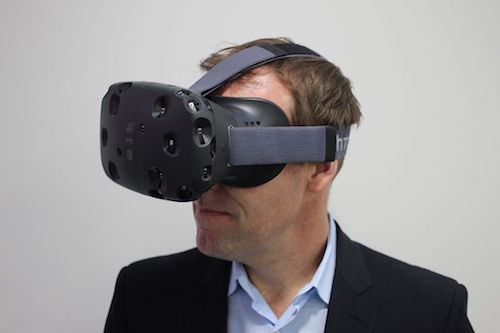 Evolution
Evolution
 Faith & Science
Faith & Science
 Intelligent Design
Intelligent Design
 Physics, Earth & Space
Physics, Earth & Space
When Atheists Meet Creationism, You Get Creatheism

Creathiest: It is not a word that rolls easily off the tongue. But I am at a loss for one that better describes the atheists Daniel Jackson describes in a condescending post at The Spectator (“Atheists are embracing Gods and creationism“).
No bleak darkness for these disbelievers. No existential angst enters their minds. No despair over the vast emptiness in which Earth floats, seemingly alone with life. Creathiests have the comforts of religion without the commitment of a creed. Post-humanity will bring an end to all ills. Eternal life arrives when we can upload ourselves into a machine. And Elon Musk admitted to a Creator when, a couple of weeks ago, he suggested that the odds of our living in a simulation to be “a billion to one.”
Jackson writes:
Elon Musk, the billionaire inventor and entrepreneur, the twenty-first century’s answer to Howard Hughes, believes we are living in a computer simulation.
…
His argument — that, given the increasing pace of progress in computer technology, we will eventually be able to synthesise reality and consciousness — is an abbreviated version of a 2003 paper by Nick Bostrom, a philosophy Professor at Oxford.
The paper suggests that if we aren’t living in a simulation, civilisation will end before we are able to reach the ‘posthuman’ age. The detail and the terminology isn’t important; the idea is bunkum, the sort of thing that’s fun to think about on psilocybin, but not much use otherwise.
What’s interesting is the way in which atheists are embracing the idea — or at least the possibility — of creationism. If we are living in a simulation, someone or something had to create it.
It brings a kind of pleasure to watch someone apparently without religion call attention to the religiosity of the supposedly irreligious devoted to demolishing religion. It is, truly, ironic.
After all, only the religiously devoted would shut down rational discussion over their creation myth: evolution by means of random change and natural selection. Why else would otherwise very smart, well-read, articulate people fall for and promote the silly, unfounded “just so” stories with which evolutionary research is generously stocked? What else can explain the consistent misrepresentation of alternative views and the refusal to engage counterarguments? Only because it serves creathiests as their creation myth is evolution held with such irrational passion against the evidence of design.
The same fervor promotes the ungrounded faith in a coming Singularity, when computers will transcend us, perhaps leading to our demise. It is not a logical result drawn from the data. It is a wild extrapolation that fails to admit the vast amount we don’t know and the limits of our technological successes. It is not a short leap from a pattern-matching, game-playing machine — such as Google’s AlphaGo — to awe-inspiring AI super-intelligence. It is a blind leap of religious faith.
For everyone engaged in the evolution debate, a calm, rational discussion would be best. Religious devotion, no matter how sincere, cannot alter the evidence or up-end the challenge. Let’s leave our a priori commitments behind and look closely at what we’re seeing, following the evidence wherever it leads.
Photo credit: Maurizio Pesce [CC BY 2.0], via Wikimedia Commons.
